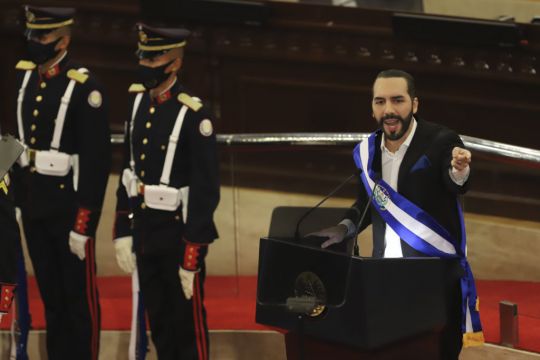El Salvador President Nayib Bukele has announced his intention to send proposed legislation to the country’s congress that would make Bitcoin legal tender in the Central American nation.
The 39-year-old president characterised it as an idea that could help El Salvador move forward.
In a recorded message at a Bitcoin conference in Miami on Saturday, he said: “Next week I will send to Congress a bill that will make Bitcoin a legal tender in El Salvador.
#Bitcoin has a market cap of $680 billion dollars.
If 1% of it is invested in El Salvador, that would increase our GDP by 25%.
On the other side, #Bitcoin will have 10 million potential new users and the fastest growing way to transfer 6 billion dollars a year in remittances.— Nayib Bukele (@nayibbukele) June 6, 2021
Advertisement
“In the short term this will generate jobs and help provide financial inclusion to thousands outside the formal economy and in the medium and long term we hope that this small decision can help us push humanity at least a tiny bit into the right direction.”
The US dollar is El Salvador’s official currency. About one quarter of El Salvador’s citizens live in the US and last year, despite the pandemic, they sent home more than 6 billion dollars (£4.26 billion) in remittances.
Mr Bukele’s New Ideas party holds a supermajority in the new congress seated on May 1, giving any legislative proposal from the president a strong likelihood of passage.
Furthermore, 70% of El Salvador’s population doesn’t have a bank account and work in the informal economy.
Financial inclusion is not only a moral imperative, but also a way to grow the country’s economy, providing access to credit, savings, investment and secure transactions.— Nayib Bukele (@nayibbukele) June 6, 2021
Advertisement
Additional details of the plan were not released. But Mr Bukele in subsequent messages on Twitter noted that Bitcoin could be “the fastest growing way to transfer 6 billion dollars a year in remittances”.
He said that a big chunk of those money transfers were currently lost to intermediaries and with Bitcoin more than a million low-income families could benefit.
He also said 70% of El Salvador’s population does not have a bank account and works in the informal economy, adding Bitcoin could improve financial inclusion.







